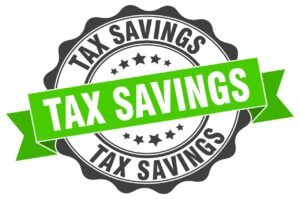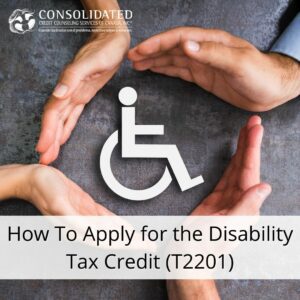To help you navigate your taxes this year, we will share important dates, updated tax brackets, and new income tax laws that you must know. Especially, if you work from home or are a homeowner. We’ll also go over some useful general tax information like how to file, who should file, and how to get the most out of your income tax return.
Deadline for filing your taxes
Make sure you don’t file your taxes late and incur penalties. Below are some important tax season dates to remember.
- As an individual, you will have until April 30th, 2024, to file your taxes
- For the self-employed, the deadline to submit your taxes is June 17th, 2024
- For both employed and self-employed, the deadline to pay any money owed to the Canadian Revenue Agency for your 2023 taxes is April 30th, 2024.
What are the new tax brackets?
Tax brackets play a key role in how much tax you end up paying. Your income and the province/territory you live in determine your specific tax rate. The higher your income, the higher your tax bill.
In Canada, there are two tax brackets to be aware of, federal and provincial/territorial. They are adjusted each year. Below is a list of the new 2024 federal tax brackets.
- Income up to $55,867 has a tax rate of 15%.
- A 20.5% tax rate applies to the portion of taxable income between $55,867 and $111,733.
- The tax rate is 26% for the portion of taxable income, ranging from $111,733 to $173,205.
- A 29% tax is applied to the taxable income portion ranging from $173,205 to $246,752.
- A 33% tax rate applies to the part of your taxable income that exceeds $246,752.
If you would like to know more about tax brackets or find out the new tax brackets in your province, visit the Government of Canada website.
Understanding changes to income tax rules in 2024
Homeowners
According to the new law set by the government, if you sell your primary home within a year of purchasing it, you will not qualify for the principal residence exemption. As a result, you will need to pay full business taxes on the sale proceeds.
While the new rule above might pinch some wallets, there is good news for homeowners as well. If you purchased a home in 2023 and you or your spouse haven’t lived in it yet or in another home you owned in the past four years, you could be eligible for the First-Time Home Buyers’ Tax Credit (HBTC) of $10,000. This credit will increase your tax refund by $1500.
Persons with a disability
If you renovated your house to accommodate a family member living with a disability in 2023, you might be eligible for the multigenerational home renovation tax credit (HRTC).
The HRTC allows you to claim up to $50,000 in eligible expenses for a home renovation project. The project can receive a tax credit of up to $7,500, covering 15% of eligible costs.
Remote workers
During the pandemic, remote-working Canadians were allowed to claim home office expenses and home internet access fees on their taxes in two ways.
Flat rate method
Remote workers could claim $2 for each day they worked from home from 2022 to 2023, with a maximum limit of $500. However, this method is no longer allowed. Going forward, using the detailed method is required.
Detailed method
To use the detailed method, remote workers simply fill out and sign the T2200 (Declaration of Conditions of Employment) form and then have their employer sign it.
If you’re working remotely and want to make a claim on your taxes, it’s important to monitor the time you spend working at home. Additionally, factor in any other expenses associated with working from home such as office supplies like printers and pens.
Not only can you claim office supplies, but you may claim items like:
- Internet access
- Electricity
- Heating
- Travel
- Vehicle costs
- Rent
How do I increase my tax returns?
Here are 4 tips that will help you increase your tax returns:
Tip 1: Save your medical receipts
The CRA allows you to claim medical expenses. These expenses include dental care, prescription medications, and even private insurance premiums. All you will need to do is keep all the receipts.
Tip 2: Contribute to your RRSP
By contributing to your RRSP, you can reduce your tax bill and potentially receive a bigger tax return. You can contribute up to 18% of your earned income, including any unused amounts from previous years. You can verify your RRSP contribution limit by logging into your CRA My Account.
Tip 3: Claim student loan interest
To increase your tax refund, don’t forget to claim any student loan interest you paid out on your tax return. However, this is only possible if your loan comes under the Canada Student Financial Assistance Act. You cannot claim interest if your student loan is a personal loan, a line of credit, or from an overseas bank.
Tip 4: Claim childcare
If you have a child who is under 16 years old, you may be able to claim some expenses. You can claim a deduction for things such as daycare centers, summer camps, nannies or babysitters, and even overnight boarding schools.
How do I file my taxes?
Filing taxes in Canada can be done in multiple ways. Which method is best often depends on cost, comfort level with doing taxes, the complexity of your taxes, and how fast you’d like your return.
Software
You can file your taxes online with a variety of certified software that has been approved by the CRA. Some of the popular applications include:
To make things really easy, many of them are downloadable to your computer, tablet, or phone.
Get a representative
Get someone who is highly experienced at filing their taxes. You can get a family or friend to help you out or a certified accountant.
Look into Tax Clinics
In almost every city and province in Canada, numerous free tax clinics can aid you in filing your taxes. There are certain restrictions, such as income level, that dictate who can make use of these clinics. If you would like to find a clinic near you, visit the Government of Canada website.
File your taxes on paper
Filing your taxes by hand is still a viable and preferred method for many people. Just download your T1 Income Tax Package to get started.
Income tax return documents
Below is a list of documents necessary for tax filing:
- T4 slips (Employment income)
- Employment insurance benefits (T4A or T4E)
- COVID-19 relief payments or repayments (T4A)
- Interest, dividends, mutual funds (T3, T5, T5008)
- T2202 Tuition and Enrollment Certificate
- Old Age Security and CPP benefits (T4A-OAS, T4AP)
- Other pensions and annuities (T4A)
- Social assistance payments (T5007)
- Workers’ compensation benefits (T5007
Final thoughts on tax returns
Although tax season can be stressful, having the right knowledge about the new tax laws and brackets can help you increase your tax refund.
Struggling with debt? Get hit with an unexpectedly high tax bill? Contact our experts. They can go over the variety of debt solutions available and help you decide which one is right for you.





